How do you get worms from a dog. The presence of a furry companion in your home brings joy and companionship, but it’s crucial to be aware of the potential health risks they might unknowingly harbor. Worms, often unnoticed and easily transmitted, are one such concern. Understanding how humans can contract worms from dogs is essential for pet owners and families. This comprehensive guide unravels the intricacies of worm transmission, highlighting the potential for infection, and providing practical steps for prevention and responsible pet ownership.
Understanding the Types of Worms
Before delving into transmission pathways, it’s important to grasp the different types of worms that can affect both dogs and humans. These parasites, often microscopic, live within the digestive system and can cause a range of health issues if left untreated.
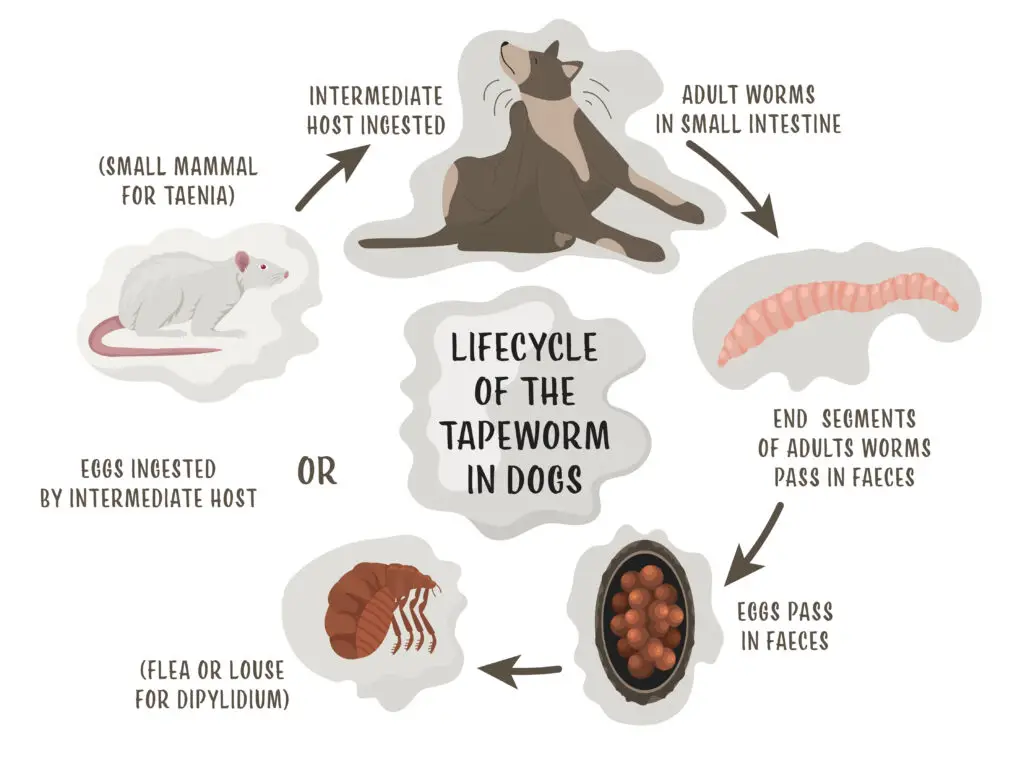
Common Types of Worms in Dogs – how do you get worms from a dog
- Roundworms (Ascarids): These long, cylindrical worms are a common parasite in dogs, particularly puppies. They often appear white or cream-colored and can be quite noticeable in dog feces or vomit. Roundworms can cause a variety of symptoms, including a pot-bellied appearance, weight loss despite a good appetite, and a dull coat.
- Hookworms (Ancylostomids): These tiny, hook-shaped worms attach themselves to the intestinal wall of dogs, feeding on blood. They are a serious concern as they can cause anemia and other health complications.
- Tapeworms (Cestodes): These flat, segmented worms attach themselves to the intestinal wall of dogs, often acquiring them by ingesting infected fleas. Tapeworms can cause weight loss, diarrhea, and sometimes even visible segments of the worm in feces.
- Whipworms (Trichuris): These thin, whip-shaped worms live in the large intestine of dogs. They can cause issues with absorption of nutrients, leading to weight loss and poor coat condition.

Overview of Zoonotic Worms
While several types of worms afflict dogs, not all pose a threat to humans. Zoonotic worms are the primary concern as they can be transmitted from animals to humans. These worms typically reside in the intestines of infected animals, and their eggs or larvae are often found in feces, soil, or the environment. Here are some common zoonotic worms:
- Roundworms (Toxocara canis): While roundworms can infect dogs, the most relevant species for humans is Toxocara canis. Humans can become infected with Toxocara canis by accidentally ingesting eggs found in contaminated soil, by contact with infected feces, or even by consuming contaminated food.
- Hookworms (Ancylostoma caninum): Hookworms also have a zoonotic potential. Humans can be infected by coming into contact with contaminated soil, playing in areas where infected dogs have defecated, or even by direct contact with an infected dog’s skin or fur.
- Tapeworms (Echinococcus granulosus): This tapeworm is typically found in dogs and wolves, and humans can become infected by ingesting contaminated food or water. The parasite can cause a serious condition called hydatid disease, which can affect the liver, lungs, or brain.
The Pathways of Infection: How Worms Transfer
Understanding the various ways worms can transfer from dogs to humans is crucial for prevention. Recognizing these pathways allows you to take proactive measures and protect yourself and your family.
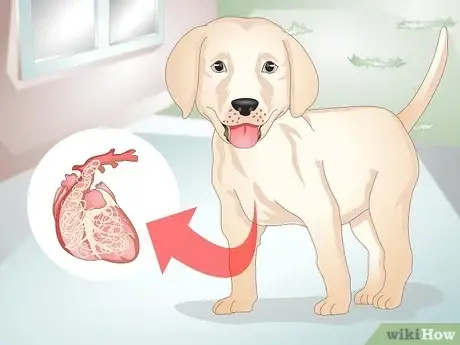
Contact with Contaminated Feces
One of the primary routes of transmission for zoonotic worms is through contact with infected feces. Dog waste can contain eggs or larvae of these parasites, which can survive in the environment for extended periods. Here’s how this happens:
- Direct Contact: Humans can inadvertently come into contact with contaminated feces when picking up dog waste, cleaning up after their pets, or even playing in areas where infected dogs have defecated.
- Indirect Contact: Eggs or larvae can also be present on objects that have come into contact with feces, such as shoes, gardening tools, or even children’s toys.
This route of transmission highlights the importance of proper waste management and hygiene practices. It emphasizes the need to sanitize surfaces and wash hands thoroughly after handling dog waste.
Environmental Exposure
Dogs often pick up worms from the environment, particularly contaminated soil, water sources, or areas where other infected animals have been present. Humans can unwittingly become exposed to these parasites in various ways:

- Gardening: Contact with soil, especially in areas frequented by dogs, can expose humans to worm eggs or larvae.
- Playing Outdoors: Children, in particular, are susceptible to infection when they play in soil or areas where dogs go.
- Barefoot Activities: Walking barefoot in areas with potential contamination increases the risk of exposure.
This pathway highlights the importance of choosing dog-friendly areas for play and exercise, as well as taking precautions when gardening. Regularly deworming dogs also helps decrease the chance of environmental contamination.
Direct Contact with Infected Animals
While environmental factors play a significant role in transmission, direct contact with infected dogs can also lead to infection, especially for young children.
- Licking: Dogs may lick their paws or fur after being in contaminated areas, and then interact with their owners. This licking can transfer eggs or larvae to the human’s skin.
- Grooming: Grooming an infected dog can expose humans to parasites, especially if they come into contact with the dog’s fur or mouth.
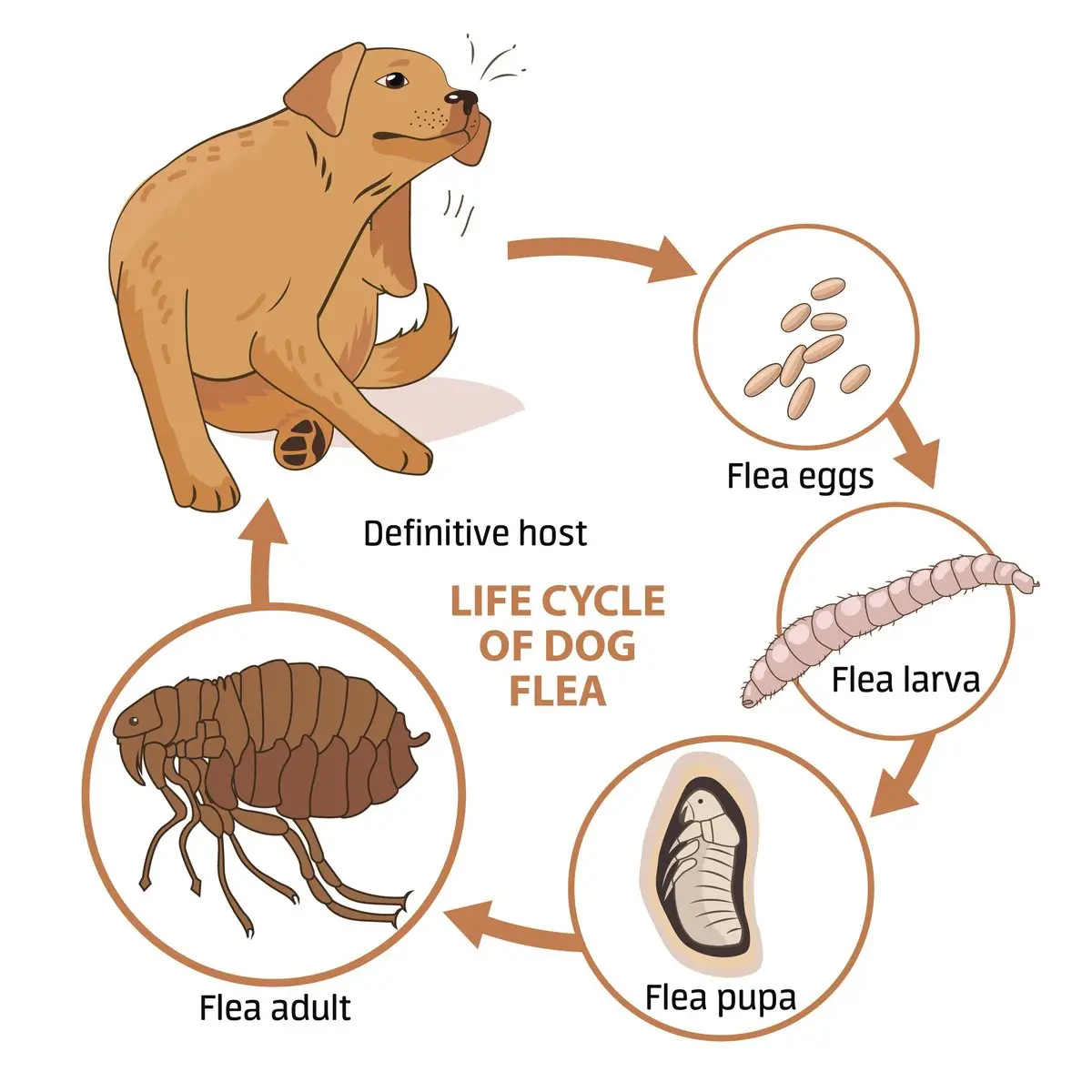
This pathway emphasizes the importance of good hygiene habits after interacting with pets and teaching children about responsible interaction with animals.
Symptoms and Diagnosis: Recognizing the Signs
Recognizing the symptoms of worm infection in both dogs and humans is essential for early detection and treatment. While some infections may be asymptomatic, others can lead to serious health complications if left untreated.
Symptoms of Worm Infection in Humans
- Abdominal Pain: Intestinal worms can cause discomfort and pain, particularly in the abdomen.
- Fatigue and Weakness: Parasites can drain the body’s resources, leading to feelings of fatigue, weakness, and lethargy.
- Diarrhea or Constipation: Intestinal worms can disrupt the digestive process, resulting in changes in bowel habits.
- Weight Loss: Parasites can compete for nutrients, leading to weight loss despite a good appetite.
- Coughing and Wheezing: In some cases, worm infections can affect the lungs, causing respiratory symptoms.
- Eye Problems: A rare but serious complication of roundworm infection is visceral larva migrans (VLM), which can affect the eyes and potentially lead to vision loss.
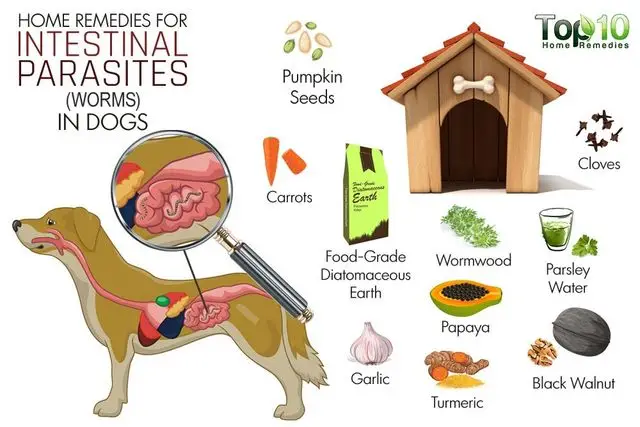
It’s crucial to remember that these symptoms can also be caused by other health conditions. If you suspect a worm infection, it’s essential to seek medical attention for proper diagnosis and treatment.
Common Signs of Worms in Dogs
- Visible Worms in Feces or Vomit: The most obvious sign of a worm infection is spotting worms in your dog’s feces or vomit.
- Weight Loss Despite Good Appetite: Intestinal parasites can lead to nutrient deficiencies, resulting in weight loss even if your dog eats well.
- Bloated Abdomen: Worms can cause a distended belly, giving your dog a pot-bellied appearance.
- Diarrhea or Constipation: Worms can disrupt the digestive process, leading to changes in bowel habits.
- Dull Coat and Skin Problems: Parasites can affect nutrient absorption, resulting in a dull coat and skin issues.
If you notice any of these symptoms in your dog, it’s crucial to schedule a veterinary visit promptly for diagnosis and treatment.

Diagnostic Methods for Humans and Pets
- Stool Analysis: The most common method for detecting worm infections in both humans and dogs is a stool analysis. A sample of feces is examined under a microscope for the presence of eggs or larvae.
- Blood Tests: Blood tests can detect antibodies against certain worms, which indicates an active infection.
- Imaging Studies: In some cases, imaging studies such as X-rays, ultrasound, or CT scans may be used to identify worms or their effects on the body.
The diagnostic methods vary depending on the suspected worm and the individual’s symptoms.
Prevention: Safeguarding Against Transmission
Preventing worm transmission is essential for protecting both your family and your furry friend. Practicing good hygiene, responsible pet waste management, and routine veterinary care are vital.
Regular Veterinary Check-ups
Regular veterinary check-ups play a crucial role in preventing worm infestations. During these appointments:
- Deworming: Veterinarians recommend deworming schedules based on your dog’s age, breed, and lifestyle. Deworming medication eliminates the parasites and helps prevent reinfection.
- Fecal Examinations: Routine fecal examinations are essential to identify the presence of worm eggs or larvae, even if your dog isn’t showing symptoms.
It’s important to follow your veterinarian’s recommendations for deworming schedules, as different types of worms require different treatments and frequencies.

Proper Waste Management
Promptly and properly disposing of dog waste is crucial for preventing the spread of parasites.
- Picking Up Feces: Always pick up your dog’s waste immediately, even if it’s in your yard.
- Proper Disposal: Dispose of waste in sealed bags and place them in designated waste containers. Avoid leaving waste bags exposed in your yard.
- Cleaning Up After Other People’s Dogs: If you encounter dog waste in public areas, be responsible and dispose of it properly.
Proper waste management prevents the contamination of soil and water sources, reducing the risk of infection for both pets and humans.
Hygiene Practices
Thorough hygiene is vital for minimizing the risk of worm infection.
- Handwashing: Wash your hands thoroughly with soap and water after handling your dog, their toys, their bedding, or after picking up their waste.
- Clean Up Contaminated Areas: Clean up any spills or accidents involving dog feces or vomit immediately.
- Wash Shoes and Clothing: Wash your shoes and clothing after being outdoors, especially in areas frequented by dogs.
- Monitor Children’s Activities: Supervise children when they are playing outdoors, especially near areas where dogs go.
It’s crucial to teach children about the importance of handwashing, especially after interacting with dogs or playing outdoors.
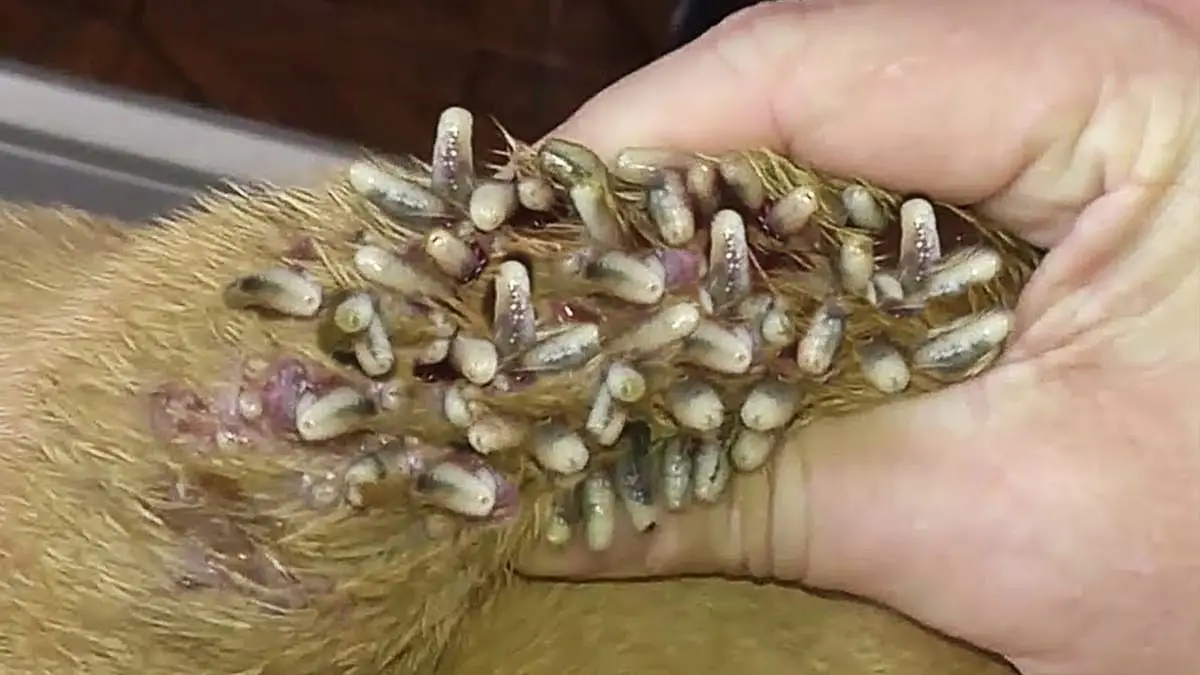
The Importance of Monitoring Pet Health
Responsible pet ownership involves taking proactive steps to monitor your dog’s health and address any potential issues promptly. This includes routine deworming schedules and recognizing signs of worm infection.
Routine Deworming Schedules
Veterinarians recommend deworming schedules based on your dog’s age, breed, and lifestyle. Puppies are particularly susceptible to worm infestations, and regular deworming is essential for their health.
- Puppies: Puppies should be dewormed at regular intervals, starting at 2 weeks of age and continuing until they are 6 months old.
- Adult Dogs: Adult dogs require regular deworming schedules as well, depending on their lifestyle and risk factors, such as exposure to other dogs or the environment.
Following your veterinarian’s recommendations for deworming is crucial for preventing and managing worm infestations in your dog.
Signs to Watch For in Your Dog
Even with regular deworming, it’s important to be vigilant about any signs of worm infection in your dog.
- Feces: Pay attention to your dog’s feces. Any change in color, consistency, or the presence of worms should be reported to your veterinarian immediately.
- Appetite: Sudden changes in appetite, especially weight loss despite eating well, are potential signs of worm infection.
- Energy Levels: If your dog seems sluggish or lethargic, it could be a symptom of a worm infection.
Prompt action is essential. Don’t delay seeking medical attention if you suspect your dog may have worms.

Impact on Different Age Groups
Worm infections can present a greater risk to certain age groups, including children and elderly individuals. Understanding these vulnerabilities is crucial for taking appropriate preventive measures.
Risks to Children
Children are particularly vulnerable to worm infections for several reasons:
- Physical Development: Their immune systems are still developing, making them more susceptible to infections.
- Hygiene Practices: Children often have less developed hygiene habits, increasing their risk of exposure.
- Play Habits: Children often play outdoors in areas that may be contaminated with dog waste.
- Hand-To-Mouth Behavior: Young children tend to put their hands in their mouths more frequently, potentially ingesting worm eggs or larvae.
It’s crucial to teach children proper handwashing techniques, supervise their activities outdoors, and maintain strict hygiene practices, especially after contact with dogs or their environments.
Vulnerability of Elderly Adults
Elderly individuals may also face increased vulnerability to worm infections due to:
- Weakened Immune System: Older adults often have weaker immune systems, making them less resilient to infections.
- Health Conditions: Underlying health conditions, such as chronic diseases or compromised immune systems, can exacerbate the risks associated with worm infections.
- Lifestyle Factors: Elderly individuals may have limited mobility, making it more challenging to maintain good hygiene and avoid potential exposure.
It’s important to encourage elderly adults to practice good hygiene, avoid contact with dog waste, and seek medical attention promptly if they experience any unusual symptoms.

Education and Awareness
Raising awareness about the potential for worm transmission from dogs is crucial for protecting both individuals and communities. Informing pet owners and advocating for community initiatives on pet health can minimize the risks.
Informing Pet Owners
Pet owners play a vital role in preventing the spread of worms. Providing access to accurate information is key.
- Veterinary Consultations: Encourage pet owners to schedule routine veterinary check-ups and follow their veterinarian’s recommendations for deworming schedules and fecal examinations.
- Educational Materials: Distribute flyers, brochures, or online resources detailing the risks of worm transmission, proper waste management, and good hygiene practices.
- Community Events: Organize local events or workshops to educate pet owners about worm prevention and responsible pet ownership.
By equipping pet owners with the knowledge they need, we can encourage responsible behavior and protect their families and communities from unnecessary risks.
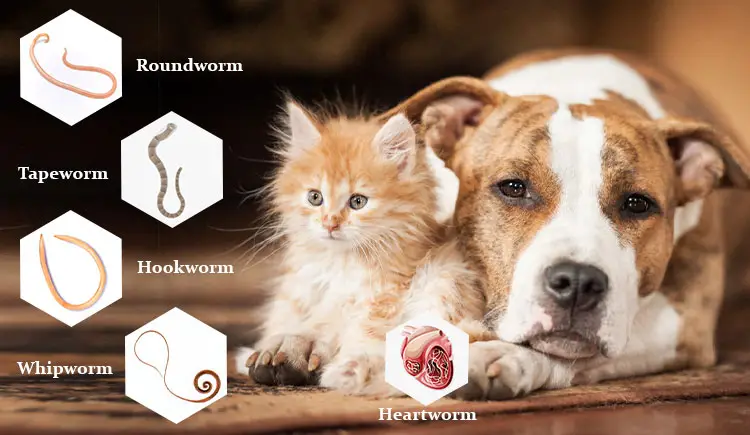
Community Initiatives on Pet Health
Public health initiatives are essential for addressing the broader implications of zoonotic diseases.
- Public Education Campaigns: Launch public awareness campaigns through local media, social networks, or public forums to educate the community about the risks of worm transmission from pets.
- Pet Waste Management Programs: Implement programs to encourage responsible pet waste management, including the provision of public dog waste disposal stations and educational campaigns about proper waste disposal.
- Collaboration with Animal Welfare Organizations: Partner with animal shelters, rescue groups, and veterinary clinics to promote responsible pet ownership practices, including deworming and preventative care.
By collaborating and promoting community-based initiatives, we can create a healthier environment for pets and people alike.
The Broader Implications for Public Health
Worm infections are not just a personal health concern; they have significant implications for public health. Zoonotic diseases can impact entire communities, highlighting the interconnectedness of animal and human health.
Zoonotic Diseases and Their Effects
Zoonotic diseases, like those caused by worms, pose a serious threat to public health, particularly in densely populated areas.

- Spread of Infection: The potential for widespread infection increases, as these diseases can spread quickly through contact with infected animals or their environments.
- Economic Impact: Outbreaks of zoonotic diseases can lead to significant economic burdens, including healthcare costs, lost productivity, and disruptions to daily life.
- Social Implications: Zoonotic diseases can create fear and stigma within communities, impacting social interactions and community cohesion.
Understanding and controlling zoonotic diseases is essential for preserving public health and building resilient communities.
Building Healthy Communities through Responsible Pet Ownership
Responsible pet ownership is a cornerstone of public health. It involves a commitment to the well-being of pets, recognizing their potential impact on human health.
- Preventative Measures: Encouraging routine veterinary care, responsible waste management, and good hygiene practices minimizes the risk of both pet and human infections.
- Community Collaboration: Fostering collaboration between pet owners, animal welfare organizations, and public health authorities is essential for creating a safe and healthy environment for everyone.
- Education and Outreach: Investing in education and outreach programs to raise awareness about zoonotic diseases and responsible pet ownership is vital for building a healthy and informed community.

By promoting responsible pet ownership and fostering a culture of preventative care, we can strengthen public health and create a safer and healthier future for everyone.
What to Do If You Suspect Infection
If you suspect you or your dog may have a worm infection, prompt action is essential. These steps can help you navigate the situation effectively.
Steps for Immediate Action
- Consult Your Doctor or Veterinarian: Don’t hesitate to seek medical attention immediately if you suspect you or your dog may have worms. They can guide you on appropriate next steps.
- Collect Fecal Samples: Your doctor or veterinarian may request a fecal sample for analysis, which helps with diagnosis and treatment.
- Avoid Contact with Others: Avoid close contact with others, especially young children, until you have been diagnosed and treated. This helps prevent the spread of infection.
Seeking medical attention promptly is crucial for identifying the type of worm and initiating effective treatment.
Seeking Medical Attention
- Symptoms: If you experience any symptoms consistent with a worm infection, it’s important to seek medical attention from your doctor for diagnosis and treatment.
- Diagnosis: Your doctor will ask about your symptoms, travel history, and potential exposures. They may also order tests, such as a stool analysis or blood test, to confirm the diagnosis.
- Treatment: Treatment for worm infections typically involves medications that target and kill the parasites. These medications are generally safe and effective.

Treatment Options Available
Treatment for worm infections in dogs and humans differs based on the specific type of worm. Understanding these options is essential for ensuring effective and safe treatment.
Medications for Worms in Dogs
- Deworming Medications: Vets often prescribe deworming medications that target specific types of worms. These medications are typically safe and effective for dogs, but it’s important to follow your veterinarian’s instructions carefully.
- Over-the-Counter Treatments: Some over-the-counter deworming medications are available for dogs, but it’s essential to consult with your veterinarian to ensure that the treatment is appropriate for your dog’s specific needs.
Human Treatments and When to Use Them
- Prescription Medications: Doctors typically prescribe medications specifically for the type of worm infection diagnosed. These medications are safe and effective when taken as directed.
- Treatment Duration: The duration of treatment for worm infections in humans varies depending on the type of worm. Your doctor will provide instructions for the duration of medication and any follow-up care.
It’s essential to follow your doctor’s instructions closely and complete the full course of treatment, even if you start feeling better. Stopping treatment early can allow the parasites to survive and potentially become resistant to medication.
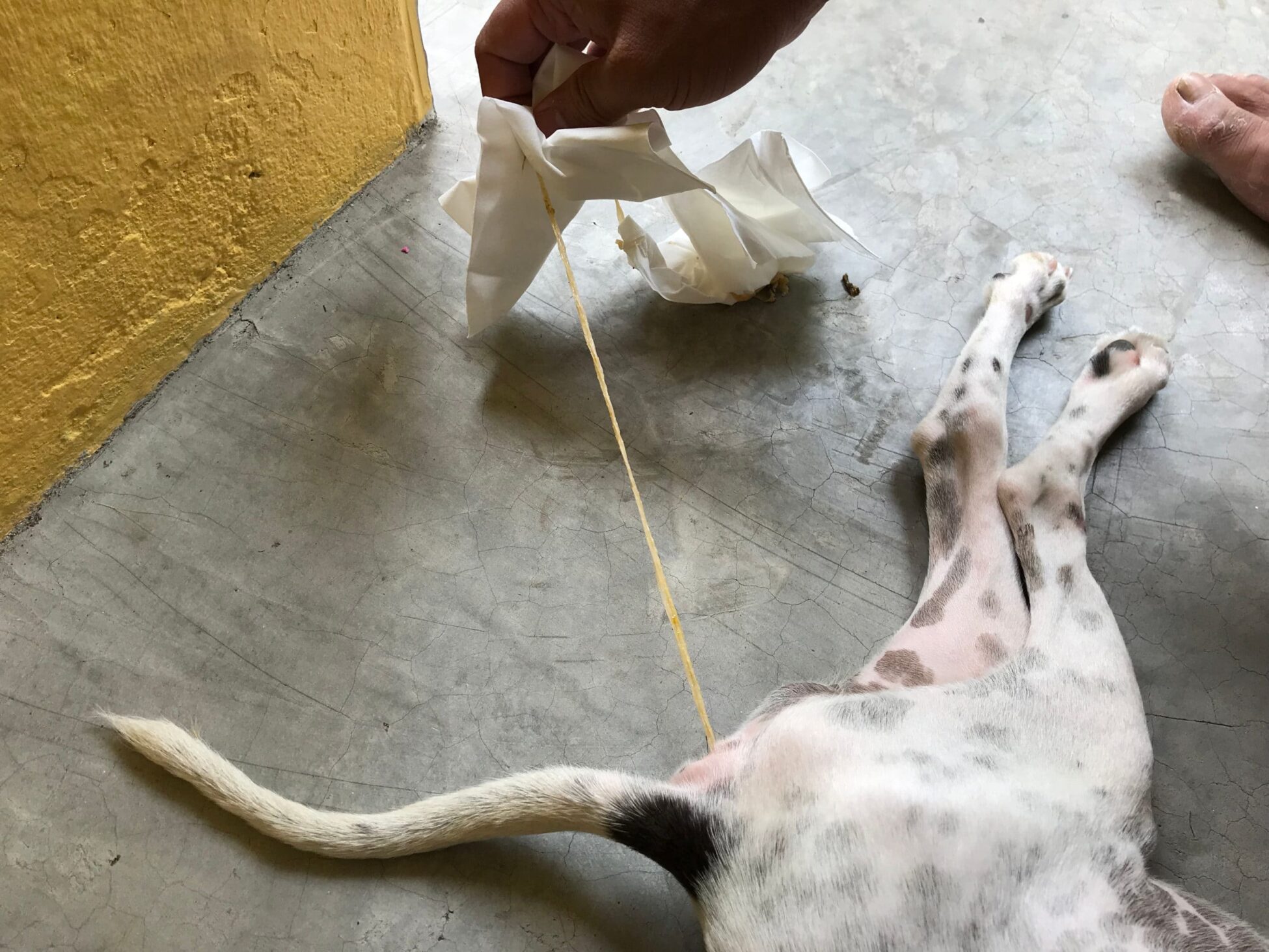
Myths and Misconceptions About Worm Transmission
Misinformation and myths about worm transmission can lead to unnecessary anxiety or a lack of preventative steps. Clarifying these misconceptions is crucial for fostering accurate understanding and responsible pet ownership.
Debunking Common Myths
- Myth 1: Only Puppies Carry Worms: While puppies are more susceptible to worm infections, adult dogs can also carry parasites. Regular deworming and preventative measures are essential for dogs of all ages.
- Myth 2: Only Dirty Dogs Carry Worms: Dogs of all breeds and lifestyles can carry worms. Even well-maintained and indoor dogs can be potentially infected.
- Myth 3: You Can Get Worms from Dog Fur: While direct contact with contaminated fur can spread worm eggs or larvae, the primary risk comes from fecal contamination.
It’s important to consult with your veterinarian or credible sources for accurate information about worm transmission to avoid spreading misinformation or anxieties.

Clarifying Facts about Worms and Pets
- All Dogs Can Carry Worms: Any dog, regardless of breed, age, or lifestyle, can carry worms.
- Fecal Contamination is Key: The primary route of transmission is contact with contaminated feces, either directly or indirectly.
- Early Detection is Crucial: Early detection and treatment are essential for preventing the spread of parasites and minimizing health risks.
Understanding these facts enables pet owners to make informed decisions about their pet’s care and their family’s safety.
Long-term Health Consequences
Worm infections, if left untreated, can have serious long-term health consequences for both dogs and humans. Recognizing these potential complications emphasizes the importance of early detection and treatment.
Potential Complications from Untreated Worms
- Anemia: Hookworm infections can lead to anemia due to blood loss, resulting in fatigue, weakness, and other health complications.
- Gastrointestinal Issues: Intestinal worms can cause chronic digestive problems, including diarrhea, constipation, and malabsorption.
- Organ Damage: Some worms, like Toxocara canis, can migrate to organs like the liver, lungs, and brain, leading to significant damage and potential organ failure.
- Neurological Problems: Certain worm infections can affect the nervous system, leading to seizures, paralysis, or other neurological complications.
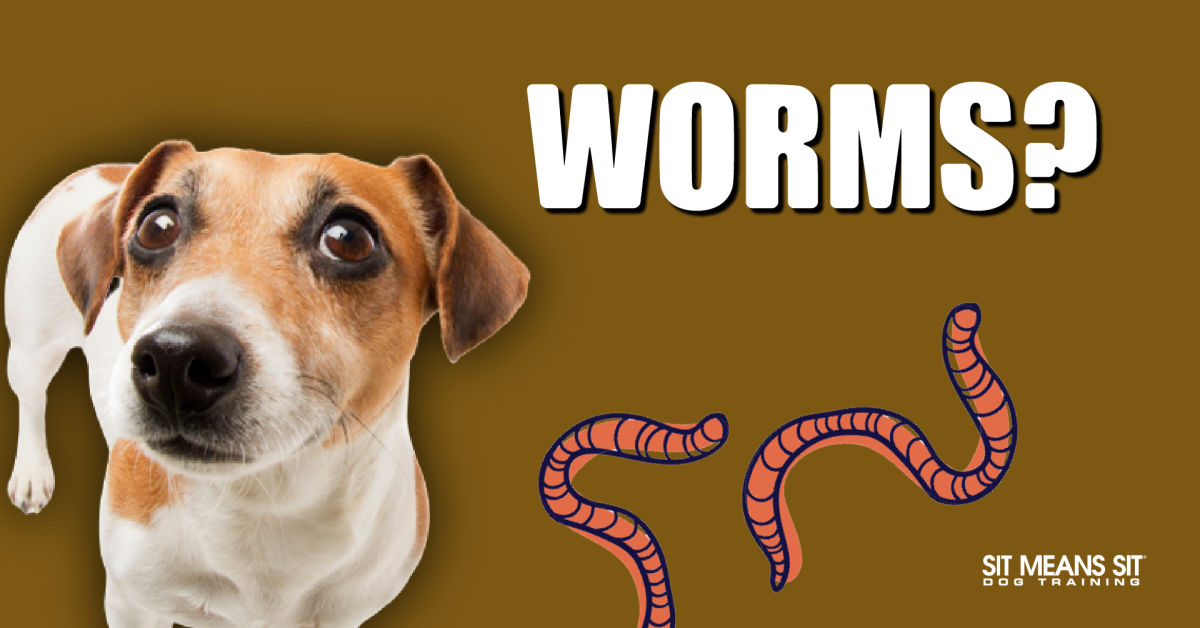
Importance of Ongoing Monitoring
Regular veterinary check-ups and monitoring your dog’s health are essential for identifying signs of worm infections. Don’t hesitate to seek medical attention if you notice any unusual symptoms in your dog. Early detection and treatment are crucial for preventing long-term health consequences.
Creating a Safe Environment for Pets and Families
Preventing worm infections requires a proactive approach to creating a safe environment for pets and families. These best practices can minimize the risk of exposure and transmission.
Best Practices for Outdoor Spaces
- Dog-Friendly Areas: Choose dog-friendly parks and areas that are well-maintained, with designated waste disposal stations and clean play areas.
- Picking Up Waste: Always pick up after your dog, even in designated dog areas.
- Gardening Gloves: Always wear gloves when gardening, especially in areas that dogs frequent.
Indoor Hygiene Tips
- Regular Cleaning: Frequently clean your dog’s bed, toys, and bowls to remove any potential contamination.
- Handwashing: Always wash your hands thoroughly with soap and water after interacting with your dog or cleaning up after them.
- Disinfection: Disinfect surfaces that have come into contact with dog feces, urine, or vomit.
By implementing these practices, you can create a safer and healthier environment for your family and your pet.

Resources for Pet Owners
There are numerous resources available to help pet owners make informed decisions about worm prevention and responsible pet ownership.
Recommended Reading and Websites
- American Veterinary Medical Association (AVMA): Provides comprehensive information on pet health, including worm prevention and treatment.
- Centers for Disease Control and Prevention (CDC): Offers guidance on zoonotic diseases and their potential risks to human health.
- The American Kennel Club (AKC): Provides information on dog breeds, health, and responsible pet ownership.
Support Groups and Forums
- Online Pet Forums: Connect with other pet owners and share information and experiences about worm prevention and treatment.
- Veterinary Websites: Many veterinary websites offer articles, FAQs, and resources on a variety of pet health topics, including worm infections.
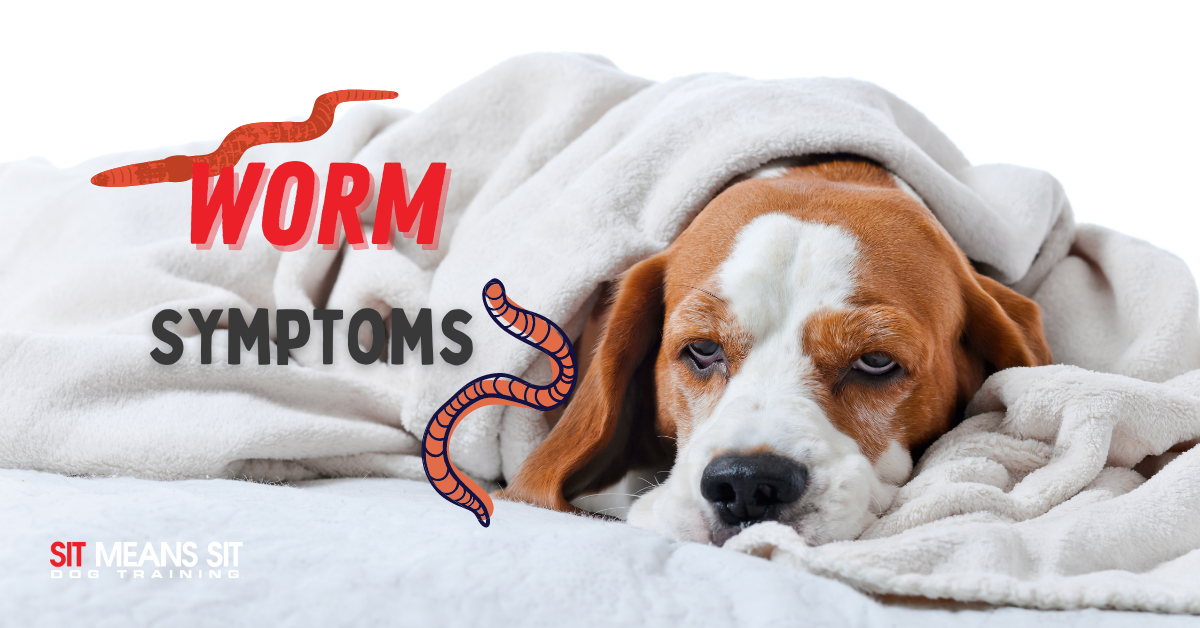
Conclusion
The presence of worms in dogs can pose a significant risk to human health. Understanding the pathways of transmission, recognizing symptoms, and taking preventive measures are crucial for protecting yourself and your family. Regular veterinary check-ups, responsible pet waste management, and strict hygiene practices are essential for ensuring a safe and healthy environment for pets and people alike. By fostering a culture of preventative care and responsible pet ownership, we can create a healthier and more resilient community for everyone.
